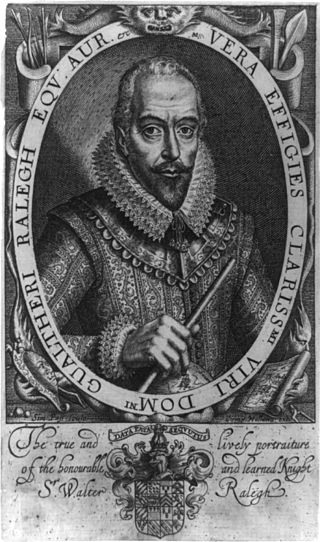| Vice Admiral of Devon | |
|---|---|
| Active | 1559-1835 |
| Country | |
| Branch | |
| Type | Naval administration |
| Role | and Naval Jurisdiction. |
The holder of the post Vice-Admiral of Devon [1] was responsible for the defence of the county of Devon, England.
| Vice Admiral of Devon | |
|---|---|
| Active | 1559-1835 |
| Country | |
| Branch | |
| Type | Naval administration |
| Role | and Naval Jurisdiction. |
The holder of the post Vice-Admiral of Devon [1] was responsible for the defence of the county of Devon, England.
As a Vice-Admiral, the post holder was the chief of naval administration for his district. His responsibilities included pressing men for naval service, deciding the lawfulness of prizes (captured by privateers), dealing with salvage claims for wrecks and acting as a judge.
The earliest record of an appointment was of George Basset 1558.
In 1863 the Registrar of the Admiralty Court stated that the offices had 'for many years been purely honorary' (HCA 50/24 pp. 235-6). Appointments were made by the Lord High Admiral when this officer existed. When the admiralty was in commission appointments were made by the crown by letters patent under the seal of the admiralty court. [2]
This is a list of people who have been Vice-Admiral of Devon . Between 1603 and 1623, a separate command existed for North Devon.

The Lord Warden of the Stannaries used to exercise judicial and military functions in Cornwall, England, UK, and is still the official who, upon the commission of the monarch or Duke of Cornwall for the time being, has the function of calling a stannary parliament of tinners. The last such parliament sat in 1753.
The Office of the Lord Lieutenant was created during the reign of Henry VIII (1509–1547), taking over the military duties of the Sheriffs and control of the military forces of the Crown. From 1569 there was provision for the appointment of Deputy Lieutenants, and in 1662 the Lord-Lieutenant was given entire control of the militia. The Regulation of the Forces Act 1871 transferred this function back to the Crown, and in 1921, the office lost its power to call upon men of the county to fight in case of need. Since 1711 all the Lord Lieutenants have also been Custos Rotulorum of Devon.
This is a list of people who have served as Custos Rotulorum of the East Riding of Yorkshire.
This is a list of people who have served as Custos Rotulorum of Middlesex.
This is a list of people who have served as Custos Rotulorum of the West Riding of Yorkshire.
This is a list of people who have served as Custos Rotulorum of Wiltshire.
This is a list of people who have served as Custos Rotulorum of Merionethshire.
The holder of the post Vice-Admiral of Cheshire was responsible for the defence County of Cheshire, England. As a Vice-Admiral, the post holder was the chief of naval administration for his district. His responsibilities included pressing men for naval service, deciding the lawfulness of prizes, dealing with salvage claims for wrecks and acting as a judge.
The Vice-Admiral of Dorset was responsible for the defence of the County of Dorset, England.

Sir Edward Seymour, 2nd Baronet was an English landowner and politician who sat in the House of Commons between 1601 and 1625. He was an ambassador to Denmark. During the English Civil War, he supported the Royalist cause.

Francis Courtenay, de jure 4th Earl of Devon, of Powderham, Devon, was an English Member of Parliament. In 1831 he was recognised retrospectively as having been de jure 4th Earl of Devon, having succeeded his father in 1630.

Sir William Courtenay of Powderham in Devon was a prominent member of the Devonshire gentry. He was Sheriff of Devon in 1579–80 and received the rare honour of having been three times elected MP for the prestigious county seat (Devon) in 1584, 1589 and 1601.

Sir John Chichester of Raleigh in the parish of Pilton, near Barnstaple in North Devon, was a leading member of the Devonshire gentry, a naval captain, and ardent Protestant who served as Sheriff of Devon in 1550-1551, and as Knight of the Shire for Devon in 1547, April 1554, and 1563, and as Member of Parliament for Barnstaple in 1559, over which borough his lordship of the manor of Raleigh, Pilton had considerable influence.